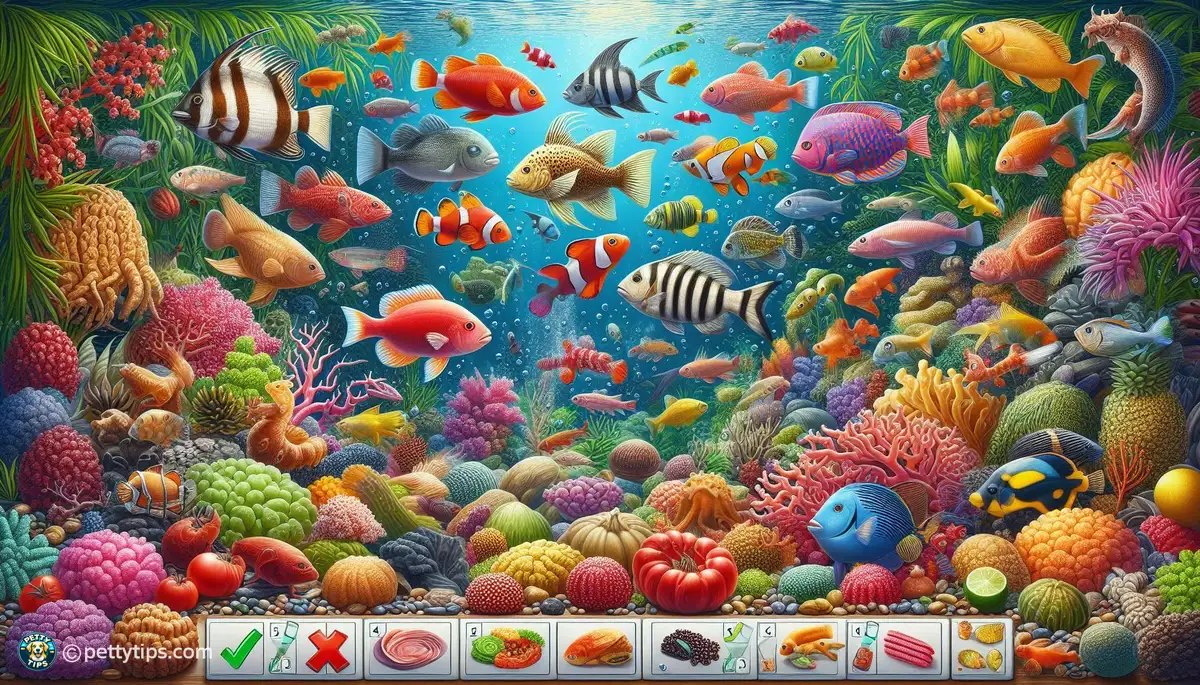
Exploring Different Breeds of Exotic Birds: Which One is Right for You?
Gonçalo Oliveira - Oct 03, 2024 - 6 min read


Understanding the specific needs and habits of your exotic fish species is crucial for their health and well-being. Each species has its own dietary requirements, feeding behaviors, and preferences. Some fish are omnivores, while others are carnivores or herbivores. Researching your fish species thoroughly will help you provide the most suitable diet.
Many exotic fish species have evolved specific feeding behaviors in their natural habitats. For example, some fish are bottom feeders, scavenging for food in the substrate, while others are surface feeders, consuming insects and floating vegetation. Observing your fish's natural feeding behaviors can guide you in replicating their diet in captivity.
The frequency of feeding varies among different exotic fish species and individuals. While some fish may require multiple small feedings throughout the day, others may thrive with just one or two larger meals. Overfeeding can lead to health issues such as obesity and water quality problems, so it's essential to tailor the feeding frequency to meet the specific needs of your fish.
When selecting food for your exotic fish, opt for high-quality commercial diets specifically formulated for their species. These diets are often enriched with essential vitamins, minerals, and nutrients to support optimal health and growth. Look for reputable brands known for their commitment to quality and nutritional balance.
In addition to commercial diets, consider supplementing your exotic fish's diet with live and frozen foods. Live foods such as bloodworms, brine shrimp, and daphnia can provide essential nutrients and stimulate natural feeding behaviors. Frozen foods offer convenience and variety, allowing you to offer a diverse diet that mimics what your fish would encounter in the wild.
Overfeeding is a common mistake among fish owners and can have detrimental effects on water quality and fish health. Only offer the amount of food that your fish can consume within a few minutes, removing any uneaten food to prevent it from decomposing and polluting the aquarium. Monitoring your fish's feeding response and adjusting portion sizes accordingly can help prevent overfeeding.
In aquariums with multiple fish species or aggressive feeders, using feeding tools can help distribute food evenly and prevent conflicts. Feeding rings, floating feeders, and target feeding techniques allow you to control the food distribution and ensure that all fish have access to their share without competition or aggression.
feeding time is not only about nourishment but also an opportunity for enrichment and interaction with your fish. Experiment with different feeding techniques such as scattering food for foraging or using puzzle feeders to stimulate natural behaviors and mental engagement. Providing enrichment during feeding can enhance your fish's overall well-being and reduce boredom in captivity.
Regularly monitor your exotic fish's behavior and feeding response to gauge their nutritional needs and overall health. Changes in appetite, activity level, and appearance can indicate potential health issues or dietary deficiencies. Adjusting your feeding regimen accordingly, such as offering more frequent meals or introducing new food varieties, can help address any issues and promote optimal health.
Overfeeding is one of the most common mistakes made by fish owners and can lead to poor water quality, algae blooms, and health issues for your exotic fish. Uneaten food decomposes quickly, releasing harmful ammonia and other toxins into the water. To avoid overfeeding, offer small, frequent meals and remove any uneaten food promptly.
Each exotic fish species has specific dietary requirements based on their natural habitat and feeding habits. Ignoring these requirements and offering an inappropriate diet can lead to nutritional deficiencies, stunted growth, and health problems. Researching your fish species thoroughly and providing a balanced diet is essential for their overall health and well-being.
Offering a varied diet is crucial for meeting the nutritional needs of your exotic fish and preventing dietary deficiencies. Feeding the same food exclusively can lead to imbalances in nutrients and boredom for your fish. Introducing a variety of live, frozen, and commercial foods ensures that your fish receive a diverse range of nutrients and helps stimulate natural feeding behaviors.
feeding exotic fish requires careful consideration of their species-specific dietary needs, feeding behaviors, and environmental factors. By understanding your fish's natural habitat and preferences, selecting high-quality foods, and employing appropriate feeding techniques, you can promote optimal health and well-being for your exotic fish. Avoiding common feeding mistakes such as overfeeding, ignoring dietary requirements, and lack of dietary variety will help ensure a thriving aquarium environment for your fish to thrive and flourish.